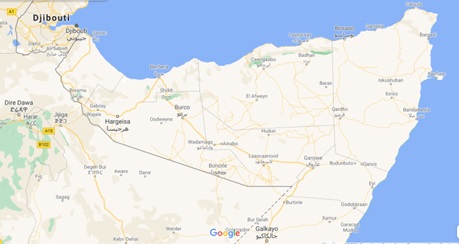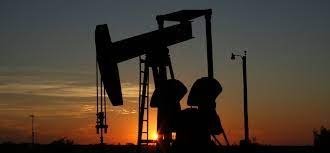By Mohamed Ali Mirreh
In the spring of 1998, an ordinary morning at a prestigious European university took a dramatic turn for Mohamud, a geology student. On this day, a British professor named Richard entered the lecture hall with more than just a lesson plan, he brought a challenge that would reveal a hidden paradox about a country largely unknown to the class.

The professor handed out a project assignment, asking the students to analyse data logs from an oil well in an undisclosed location. The task required a detailed study of the lithology, thickness, and types of hydrocarbons present in the well. Intrigued by the prospect of such a significant oil find, the students eagerly dove into the project, scrutinizing every detail to determine the well’s characteristics and potential.
After weeks of analysis and discussion, the students, including Mohamud, presented their findings, speculating on the well’s location. They listed major oil-producing nations like those in the Gulf States, Libya, Nigeria, and Venezuela, confident that such a significant find must belong to one of these countries. However, their professor had a different revelation.
With a stern expression, Professor Richard displayed harrowing images of malnourished children and communities marred by appalling destitution. He revealed that this oil well, potentially the largest in Africa, was located in Somalia—a country paradoxically rich in resources yet plagued by poverty. The well, named Holhol, is situated in the Sool region under the Khatumo state of Somalia. The students, including Mohamud, who hailed from this very region, were taken aback by the revelation.
Driven by curiosity and concern, Mohamud approached the professor for more information. He learned that the well had been contracted to a leading global oil company before the collapse of Somalia’s last central government. The company still held the license and would not relinquish it until a Somali government emerged, aligned with the interests and timeframe of the powerful country behind the big oil company. This situation highlighted the challenges Somalia faced in exploiting its own resources.
Now an employee at a major European oil and gas company, Mohamud, who still kept in touch with the professor, had since gained a deep understanding of the complex dynamics of oil licenses and geopolitical interests. He realized that Somalia’s wealth would remain untapped and manipulated by powerful countries until the nation’s governance issues were resolved. This manipulation extended beyond the oil sector, affecting Somalia’s overall stability and development. For Mohamud and many others, the revelation of Holhol’s potential was not merely an academic exercise but a painful reminder of the intricate interplay between resource exploitation by foreign powers and the geopolitical manipulation orchestrated by powerful Western countries.
The manipulation and exploitation of Somalia by external forces is not a new phenomenon. Since the mid-19th century, Somali-inhabited areas have been targeted by colonial powers. Early European explorers quickly realized that conquering Somali territories would be challenging due to the courage and pride of the Somali people and the harsh nature of their land. The resilience, shared traditions, religion, and strong attachment of the Somali people to their land made colonisation a formidable task. However, the colonizers discovered an Achilles’ heel—a vulnerability that has been exploited ever since. By exploiting this weakness, which continues to be used against Somalia today, British colonizers managed to occupy the northern territories in 1884. This occupation lasted until July 1, 1960, when the territories of the former British Somaliland Protectorate and Italian Somaliland united to form the Somali Republic.
Today, Somalia is fractured into pseudo-states along clan lines, and there is a secessionist enclave whose supporters still dream of international recognition, despite being overshadowed and dwarfed by the emergence of Khatumo State.
Ironically, as Somalis celebrate the 64th anniversary of their independence this week, the country remains under the influence of foreign powers. Operating from the Xalane camp at Mogadishu airport, these powers exert control over a morally corrupt Somali leadership, preventing the establishment of a stable national government that prioritizes Somali interests. Meanwhile, the nation’s wealth is being looted by foreign companies, both on land and at sea, with no end in sight. Adding to the woes of true Somalis, secessionists in ex-Somaliland are attempting to grant Ethiopia a portion of the Somali coastline in exchange for elusive recognition.

Given these facts, there is little to celebrate. The current plight of Somalia is akin to a wounded animal, like a wildebeest dragging itself across an open plain and bleeding for a long time, with scavengers waiting to tear it apart.
True celebrations for Somalis will come only when they reclaim their rightful statehood. To achieve this, the current generation and youth must awaken with a resolve similar to their forefathers, such as the Dervishes and all those who fought for independence. They need to reignite the blue wave movements that began in Lasanod last August and spread them from Sayla to Raskamboni.
Only then can Somalia achieve the good governance, stability, and prosperity promised by its rich resources.
Mohamed Ali Mirreh
Email: m.mmirreh@gmail.com


Leave a Reply